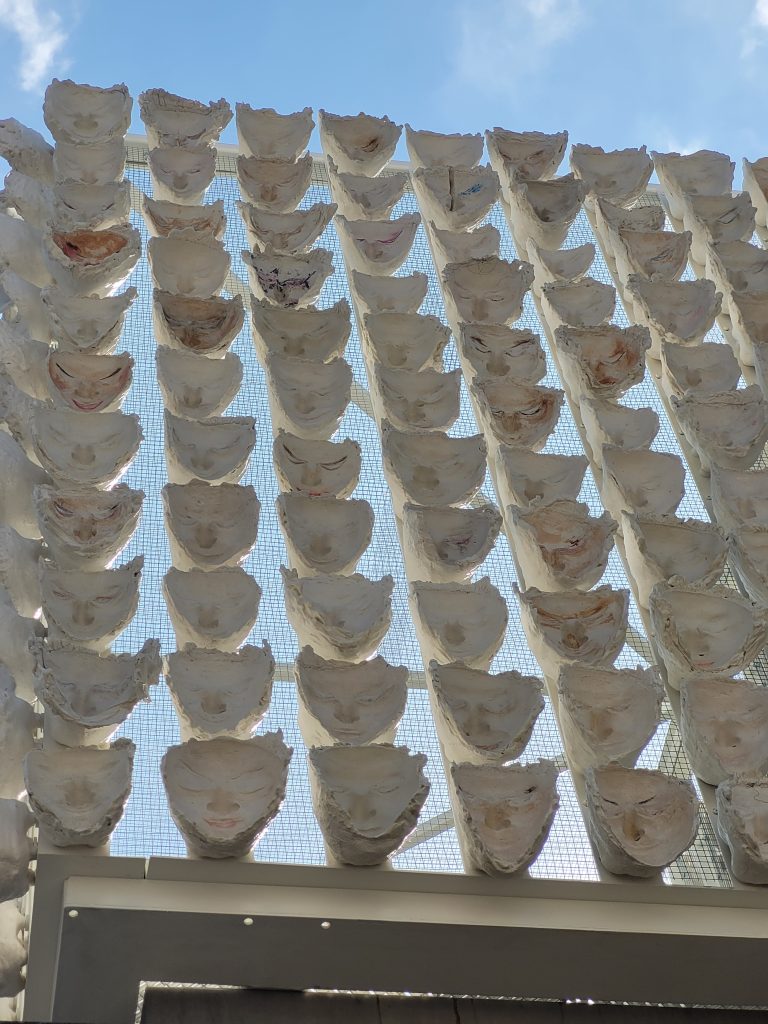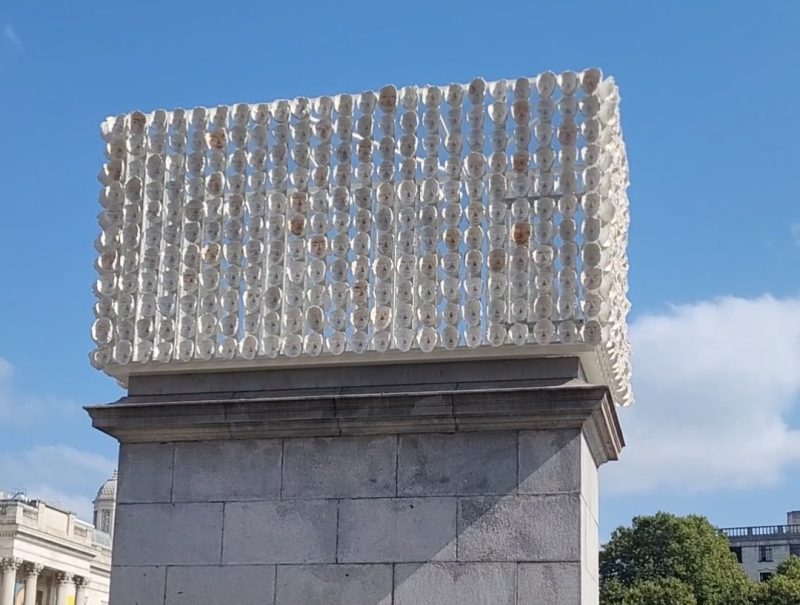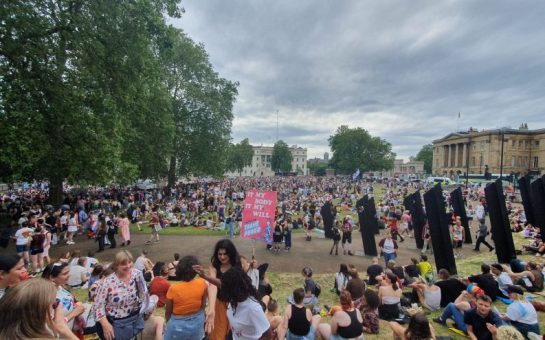A cube made up of face casts from transgender and non-binary people was unveiled yesterday atop the Trafalgar Square fourth plinth.
The piece, entitled Mil Veces un Instante or A Thousand Times in an Instant, was created by Mexican artist Teresa Margolles with the intention to celebrate, and in some cases memorialise, the lives of transgender and non-binary individuals.
The artwork was initially conceived by Margolles as a tribute to her late friend – a transgender singer and victim of an often-violent attitude to the trans community in Mexico – before choosing to create a sculpture more broadly dedicated to the wider trans and non-binary community.
Most casts came from the trans women who lived and worked in the Mexican border city of Ciudad Juárez, however, amongst the faces are also individuals from the UK.
Three such participants, who heard about the project through the LGBT+ community, and came to Trafalgar Square to pick out their likenesses in the lattice of façades, were Molly, Annabelle and Laure.
Molly, who identifies as gender queer, said: “It’s really emotional, when I came here today I was expecting to just try and pick out my face.
“But I was overwhelmed with our community and the people that I’ve met today.
“It’s nice to feel seen, it’s nice to feel validated.”
Molly also described the process of having her face cast in plaster for the project as very relaxing, likening it to a spa facial treatment.
Annabelle, a transgender woman featured in the sculpture alongside many of her friends, highlighted the power of the piece to communicate a message of solidarity to the trans community and to spread awareness of the challenges they face combating discrimination and violence.
To illustrate this idea of solidarity, the casts face inwards, in what Margolles described as a kind of group hug: enveloping her deceased friend in the strength of the community.
A consequence of this stylistic decision is that the casts reveal the aesthetic imprint of their respective models – smears of makeup, lipstick kisses, and the outline of mascara eyes.

On the choice to include these leftover traces of the project’s participants, Annabelle said: “It gives it a uniqueness.
“Your skin cells are imprinted into that cast as well, so it becomes a very personalised image.”
Another trans-woman whose profile contributed to Margolles’ work, Laure, said: “It’s amazing – I’m just hoping that people will start discussing the life that trans people have, and realise we are like everyone else.
“I just want people to understand us.
“This can be the start of a conversation for people.”
During the exhibition’s two-year installation, the casts will naturally decay from exposure to outside conditions, meaning the already visually arresting piece of art will evolve in unpredictable ways.
For Margolles, this natural process is part of her vision, with the casts reacting to both their environment and the organic materials printed on them by her subjects.





Join the discussion